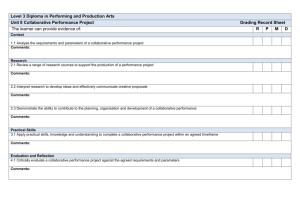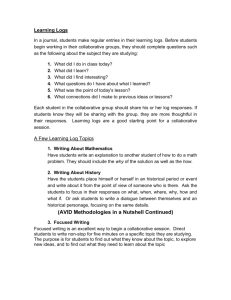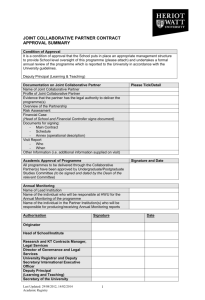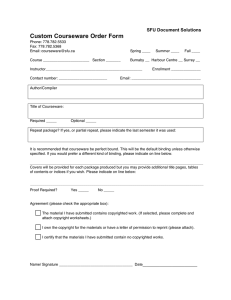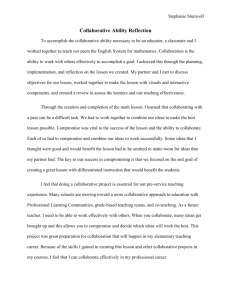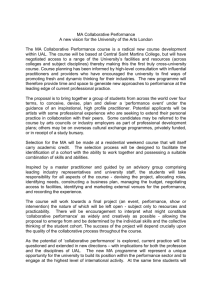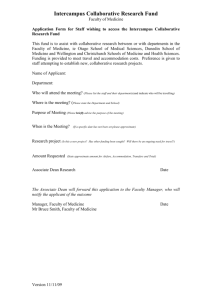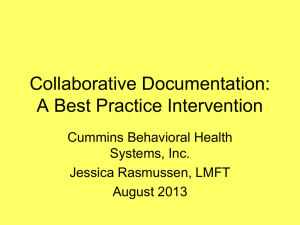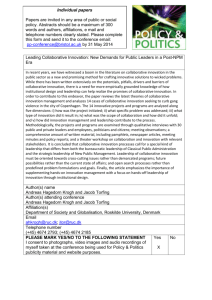Teaching Philosophy: Collaborative Learning & Writing Process
advertisement
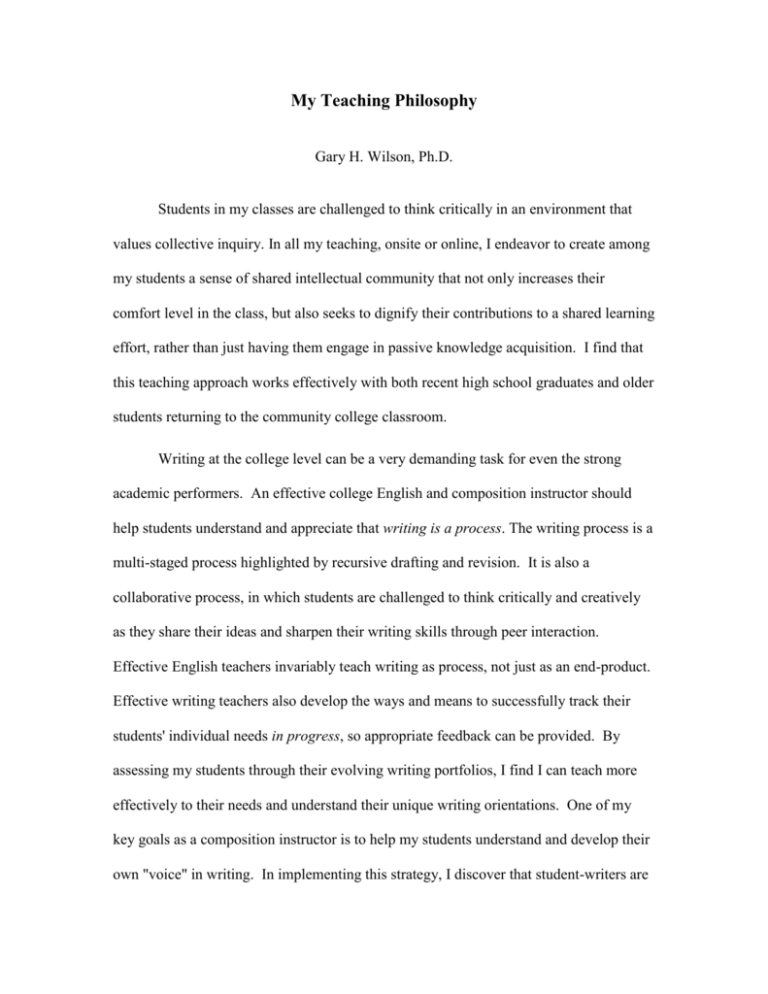
My Teaching Philosophy Gary H. Wilson, Ph.D. Students in my classes are challenged to think critically in an environment that values collective inquiry. In all my teaching, onsite or online, I endeavor to create among my students a sense of shared intellectual community that not only increases their comfort level in the class, but also seeks to dignify their contributions to a shared learning effort, rather than just having them engage in passive knowledge acquisition. I find that this teaching approach works effectively with both recent high school graduates and older students returning to the community college classroom. Writing at the college level can be a very demanding task for even the strong academic performers. An effective college English and composition instructor should help students understand and appreciate that writing is a process. The writing process is a multi-staged process highlighted by recursive drafting and revision. It is also a collaborative process, in which students are challenged to think critically and creatively as they share their ideas and sharpen their writing skills through peer interaction. Effective English teachers invariably teach writing as process, not just as an end-product. Effective writing teachers also develop the ways and means to successfully track their students' individual needs in progress, so appropriate feedback can be provided. By assessing my students through their evolving writing portfolios, I find I can teach more effectively to their needs and understand their unique writing orientations. One of my key goals as a composition instructor is to help my students understand and develop their own "voice" in writing. In implementing this strategy, I discover that student-writers are able to create deeper and more intrinsic connections with their compositions and learn to value the ownership of their own ideas and creative thoughts. Approached in this manner, writing becomes more of a creative and liberating activity than just an assignment. I encourage collaborative writing strategies both inside and outside the classroom to help students benefit from collaborative learning and also to enable them to benefit from their peers’ skills and ideas. I emphasize to all my students the precept that an effective essay develops from a process; it becomes a final draft only after multiple drafts and active peer reviews and individual revisions have occurred. My classroom experiences and recent research continue to prove that learning technologies and online courseware support students’ collaborative learning and also enable them to engage more deeply in the writing process. This active engagement in online courseware works equally for writers in onsite and online classes. Engaging in the writing process online and collaboratively through digital courseware and learning platforms, such as Blackboard, WIMBA, or Google Docs, to name several, are writing activities that continue to be rewarded by improvements in my students’ writing levels. When students write in virtual spaces, they are engaged in the process of writing—and their writing then becomes part of a collaborative enterprise where others can critique and participate in this process. For this reason, I will certainly continue to develop teaching strategies that take advantage of the benefits that digital learning platforms provide, and I will share my more successful ideas and ongoing research with colleagues. College English instructors possess the unique opportunity and responsibility to make the future a better place for their students. They should impart a vision to their students that emphasizes appreciating literature and developing effective self-expression and writing skills are vital to their personal fulfillment, both intellectually and vocationally. I have an abiding faith in the power of teaching literature and writing, and pursue this profession with an idealism that deepens every day.
